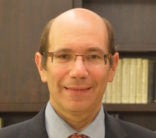Tuesday, July 8, 2014 was yet another oxymoronic pushme-pullyou day that seems as anomalous yet ubiquitous in modern Israel as the brutal summer sun and the year-round high-tech and pharma miracles. Israelis were in double-mourning: still reeling from the evil outsiders who murdered three innocent Israeli teenagers; now horrified that some fellow Israelis responded with an equally evil revenge killing. Both events transcended the usual political battle-lines. Just as Israelis, left to right, embraced the Israeli kids as their own, Israelis, left to right, repudiated the barbaric revenge-murderers. Israelis were worried, watching Hamas’s escalating rocket barrage. But Israelis were also determined, to continue living life fully and contributing to the world creatively, profoundly.
My day started with a crosstown bicycle ride to “Danny” our optometrist – it’s a first name society — with glasses my father had broken the day before in a fall. Danny stopped what he was doing and spent much of the next hour fixing them. Acting as if all he had been doing was waiting around to help, he epitomized Israelis’ characteristically warm communal touch.
I then joined my family on a sadder journey, a shiva call to the home of our friend and role model Haim Avraham. We met Haim in 2000, when he was crisscrossing the globe, beseeching politicians and supposed humanitarians to help find information about his 20-year-old son, Benny, whom Hezbollah claimed to have kidnapped. (After more than three years of hell it became clear that Hezbollah had murdered Benny and two other soldiers patrolling Israel’s internationally recognized border with Lebanon). Our kids have grown up with Haim, his wife Edna, and their wonderful family as special heroes, who did all they could in their ultimately futile quest to bring their son home alive. Haim died early Sunday morning, aged 65, of cancer; but everyone knew the real cause was a broken heart. During our visit, Benny’s former girlfriend came to pay her respects. I realized that when we only count those who were killed and wounded as terror victims, we undercount dramatically. The number of lives shattered by these crimes, in this very small county, is overwhelming.
That evening, even amid reports of missiles over Tel Aviv, we attended a celebration distributing scholarships to doctoral wunderkinds at the Israel Academy of Sciences and Humanities. The Israeli super-scientist Dan Shechtman described his Nobel Prize-winning breakthrough, which was initially mocked by the scientific establishment. He articulated the scientist’s recipe for success, including tenacity, professionalism, self-confidence, and the need to balance specializing in your own field with remaining worldly. One honoree showed his impressive range by singing arias from his parallel career as an opera tenor.
At dinner, as one phone rang updating the rocket report, and a second one rang reporting that one cousin had sent flowers to another cousin as thanks for a surprise party, a third cousin, from Montreal, remarked: “Wow, in this country, you’re busy delivering flowers to each other one minute while Hamas shoots rockets at you the next!”
Shortly thereafter sirens went off in Jerusalem. My wife and I scrambled to help our aging parents, while noting how unflappable our kids were under attack. My 17-year-old son, Yoni, then offered the sanest analysis of this insane situation. Noting that once Tel Aviv and Jerusalem were attacked the Army would respond forcefully, he said, “I’m angry that it takes bombing the center of the country to get everybody mobilized. What about the people in the South? Why should they put up with it all the time?”
Yoni’s right. No state should be expected to absorb constant rocket attacks from its neighbors. One missile fired is one too many. It takes a teenager to see the truth: Zero tolerance for these kinds of attacks in every region is the only acceptable status quo.
Ending the day, Israeli style, Yoni and his brother, Aviv, then attended a World Cup party, the proper arena for national conflicts.
This one 24-hour period thrust us all into the Jewish historical cycles of life and death, oppression and liberation, victimhood and empowerment. It also situated us in the Zionist dynamic, dancing between Israeli normalcy and exceptionalism, between Israel’s aspirations to be an enlightened Western, Jewish democratic state, and the Middle East’s atavistic gravitational forces propelled by tribalism, medievalism, and hatred.
When the Israeli songwriter Naomi Shemer sang about the “honey and the stinger,” she acknowledged the world’s ugliness while challenging us to overcome it. July 8’s normal-exceptional, inspiring-horrifying quintessentially Israeli day highlights the dangers menacing us, internally and externally. But it also shows the warmth, values, creativity, resilience and vision that keep us alive – and thriving morally, spiritually, scientifically, and politically, not just physically.
Gil Troy is professor of history at McGill University and author of “Moynihan’s Moment: America’s Fight Against Zionism as Racism.”
The New York Jewish Week brings you the stories behind the headlines, keeping you connected to Jewish life in New York. Help sustain the reporting you trust by donating today.





